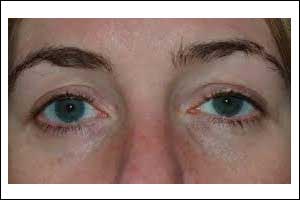- Home
- Editorial
- News
- Practice Guidelines
- Anesthesiology Guidelines
- Cancer Guidelines
- Cardiac Sciences Guidelines
- Critical Care Guidelines
- Dentistry Guidelines
- Dermatology Guidelines
- Diabetes and Endo Guidelines
- Diagnostics Guidelines
- ENT Guidelines
- Featured Practice Guidelines
- Gastroenterology Guidelines
- Geriatrics Guidelines
- Medicine Guidelines
- Nephrology Guidelines
- Neurosciences Guidelines
- Obs and Gynae Guidelines
- Ophthalmology Guidelines
- Orthopaedics Guidelines
- Paediatrics Guidelines
- Psychiatry Guidelines
- Pulmonology Guidelines
- Radiology Guidelines
- Surgery Guidelines
- Urology Guidelines
Antimalarial drugs above recommended doses increase risk of retinopathy in SLE patients

In a recent study published in the Journal of Rheumatology, scientists have shown that exposure to antimalarial drug above the recommended dosage increases the risk of retinopathy in patients with systemic lupus erythematosus (SLE).
SLE is a chronic autoimmune connective tissue disorder affecting the most vital organs of the body. Ocular manifestations are a marker for overall systemic disease activity and can occur in up 1/3rd of all SLE patients. Lupus retinopathy is one of the most common vision-threatening complications of systemic lupus erythematosus. The presence of lupus retinopathy is an accurate guide to the presence of active systemic disease activity.
The Elvis-Raymond Mukwikwi from the Université de Montreal, McGill University Health Centre, and colleagues conducted a cohort study in order to explore the factors potentially associated with retinal toxicity, using case-control analyses. The authors identified patients with retinal changes using the SLICC Damage Index. They confirmed HCQ/CQ retinopathy with chart review and selected up to three SLE controls for each case, matched on age at SLE diagnosis and SLE duration.
Key Findings
- Over an average 12.8 years of follow-up, within 326 patients exposed to antimalarial drugs, 18 developed retinal toxicity.
- The minimum number of years of HCQ/CQ exposure before retinopathy developed was 8 years (maximum 33 years).
- Mean HCQ/CQ duration was similar in cases and controls likely due to our matching on SLE duration.
- Versus controls, cases tended to have more renal disease and were slightly less likely to be Caucasian, but neither variables reached statistical significance.
- Among patients with retinal toxicity, the number previously exposed to CQ was more than three times that in controls.
Based on their results the authors concluded that just over 5% of patients developed anti-malarial retinal complications, over an average of 12.8 years. No cases were detected in the first 5 years of therapy. Past CQ use was more common in cases versus controls. Future studies using larger cohorts are underway to better define the roles of therapy duration, race/ethnicity, and other factors.
For reference, click on the link
DOI: https://doi.org/10.3899/jrheum

Disclaimer: This site is primarily intended for healthcare professionals. Any content/information on this website does not replace the advice of medical and/or health professionals and should not be construed as medical/diagnostic advice/endorsement or prescription. Use of this site is subject to our terms of use, privacy policy, advertisement policy. © 2020 Minerva Medical Treatment Pvt Ltd